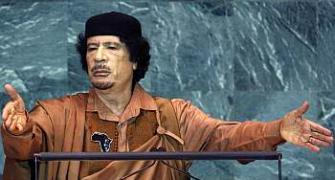Rejecting efforts to impose the Non Proliferation Treaty on it through the UN Security Council resolution, India has made it clear that it will not sign the pact as a non-weapon state as atomic arsenals are integral to its security. India has made it known to the Security Council that it cannot accept the "externally prescribed norms or standards" on issues that are contrary to its national interests or infringe on its sovereignty.
In a letter to UNSC president Susan E Rice of the US, Indian Permanent Representative to the UN, Hardeep Singh Puri questioned the role of the world body in enforcing treaties like Non-Proliferation Treaty even while he reiterated India's commitment to no-testing, no-first-use of nuclear weapons and non-discriminatory universal non-proliferation. "India cannot accept calls for universalization of the NPT," he said as the UNSC passed a resolution asking all non-NPT nations to sign the treaty which India considers flawed and discriminatory.
Citing Prime Minister Manmohan Singh's statement in Parliament on July 29, Puri said "there is no question of India joining the NPT as a non-nuclear weapon state. Nuclear weapons are an integral part of India's national security and will remain so, pending non-discriminatory
Measures to reduce nuclear dangers arising from accidental or unauthorised use of nuclear weapons are also pertinent in this regard, Puri said.There is an imperative need for preventing terrorists from gaining access to weapons of mass destruction. He said the Security Council's consideration of this issue is based on a widely-shared concern about the threat posed by all nuclear weapons to international peace and security.
"Addressing this threat requires the global elimination of nuclear weapons on a non-discriminatory basis."While preventing proliferation is important, an excessive focus on non-proliferation does a disservice to the essential principle of the mutually reinforcing linkage between disarmament and non-proliferation. "International efforts in this regard should build the necessary confidence among states so that international treaties and agreements are multilaterally negotiated and freely accepted which remains the true test of their legitimacy and credibility," he said.

Spotted: Indian delegation at UN, looking sombre





